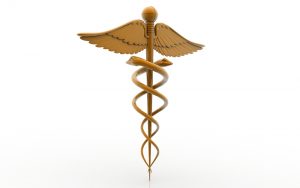Macimorelin A New Diagnostic Tool for Diagnosing Adult Growth Hormone Deficiency
Adult growth hormone deficiency is not the most straightforward condition to test for and diagnose accurately. Doctors cannot just take a blood sample and see how much growth hormone is in your blood because growth hormone is released in pulses throughout the day. Thus, the concentration in the bloodstream will vary widely over 24 hours. In addition, other symptoms need to be taken into consideration, such as decreased muscle mass and chronic fatigue.
 Doctors will take a blood sample and test for the concentration of insulin-like growth factor-1 (IGF-1), a protein produced via growth hormone stimulation by the liver and other tissues.
Doctors will take a blood sample and test for the concentration of insulin-like growth factor-1 (IGF-1), a protein produced via growth hormone stimulation by the liver and other tissues.
In addition, doctors would diagnose adult-onset growth hormone deficiency via an insulin tolerance test (IST) or glucagon stimulation test (GST).
These tests involve the use of a needle, which many people are not fans of, and thankfully, a new diagnostic test is available that involves ZERO needles.
The new product is Macrilen (macimorelin acetate), developed by Aeterna Zentaris, and is taken orally to make the administration of the drug easier for patients and providers alike.
Macimorelin Acetate: Oral Formulation for Ease of Diagnosis
In 2017, macimorelin acetate was approved by the Food and Drug Administration as a method of diagnosing growth hormone deficiency. Technically, macimorelin acetate is a synthetic growth hormone secretagogue receptor agonist. The acetate salt causes the release of growth hormone from the pituitary gland.
Chemically, macimorelin acetate is known as: D-Tryptophanamide, 2-methylalanyl-N-[(1R)-1-(formylamino)-2-(1H-indol-3-yl)ethyl]-acetate. Good luck wrapping your head around that, and prayers to the scientists who study and work with this stuff!
As stated previously, diagnosing adult-onset growth hormone deficiency can be challenging, and it needs to be confirmed with a growth hormone stimulation test (GHST). This test, GHST, is labor-intensive and can cause severe hypoglycemia.
Because of this, the test itself is not recommended for many patients. Macimorelin acetate is a much better testing form because it is an orally active growth hormone secretagogue. Once taken, the stimulated growth hormone levels can be tested via a blood test afterward. Simple as that!
How to Take Macimorelin for Adult-Onset Growth Hormone Diagnosis
To take macimorelin acetate to determine whether you are suffering from adult-onset growth hormone deficiency, you first need to get the go-ahead from your doctor. He or she needs to know whether you have ever had a hormone, thyroid, or hypothalamus disorder before and whether or not you are pregnant or breastfeeding.
One week before your growth hormone test, stop taking any growth hormone medication if you are currently taking any. Macimorelin acetate oral administration requires a fasting period of 8 hours before the test, with no food or drink except water.
Only one dose of macimorelin acetate is given, and it will be mixed in with a drink you must consume within 30 seconds. Your blood will then be drawn at 30 minutes, 45 minutes, 60 minutes, and 90 minutes later.
Side Effects of Macimorelin
The side effects of taking macimorelin acetate are minimal. However, there is always the risk of an allergic reaction. Tell your doctor immediately if you experience hives, swelling of the face, lips, tongue, or throat, and/or you have difficulty breathing.
Other serious side effects should be reported immediately: light-headedness, slow heartbeats, shortness of breath, or fast/pounding heartbeats in conjunction with dizziness like you might pass out.
Common side effects include:
- headache; dizziness
- nausea, hunger, diarrhea
- increased sweating/feeling hot
- feeling tired
- changes in sense of taste
- symptoms that are similar to a cold: stuffy nose, sore throat, sinus pain
A Simple Diagnostic Tool Available Now
Despite the possible but rare side effects, macimorelin acetate is a simple and effective way to diagnose adult-onset growth hormone deficiency. In addition, you are super safe because you’ll be in the doctor’s office for a long time after the dose is taken to take blood tests.
You can report any adverse side effects to the doctor immediately and get treated immediately.
The treatment of adult-onset growth hormone deficiency is straightforward, mainly when a qualified hormone specialist or endocrinologist is overseen. And now, the diagnosis of the condition is easier than ever before!
Typically, growth hormone deficiency is treated with growth hormone injections or sermorelin acetate injections. The patient can choose which treatment is best for them based on personal preference, finances, safety concerns, etc.
Hormone Imbalance is Simple to Treat Once Diagnosed
Adult-onset growth hormone deficiency is rising, especially in the United States. This is because as we age, it’s much easier for our hormones to become imbalanced, and certain lifestyle factors certainly play a role in this.
If you haven’t been taking care of your health correctly over the last 30-60 years, you may be paying the price now with hormone imbalance, including adult-onset growth hormone deficiency.
The only way to know for sure is to get tested. See if those annoying symptoms, such as increased belly fat, low libido, chronic fatigue, and/or low muscle mass, are due to hormone imbalance.
Contact our clinic to get tested as soon as possible! Give us a call today! We will answer any questions about macimorelin acetate as a diagnostic tool and hormone replacement therapy (HRT) in general.
- 0001 Six Questions You Should Ask Yourself Before Your Trip To The Doctor [Last Updated On: May 22nd, 2025] [Originally Added On: October 16th, 2020]
- 0002 Requirements For Hormone Replacement Therapy [Last Updated On: January 30th, 2025] [Originally Added On: October 17th, 2020]
- 0003 Hgh Testimonials And Reviews [Last Updated On: January 29th, 2025] [Originally Added On: October 18th, 2020]
- 0004 Clomiphene Citrate Information And Guide [Last Updated On: May 25th, 2025] [Originally Added On: October 19th, 2020]
- 0005 Breast Cancer: Separating Fact From Fiction [Last Updated On: January 29th, 2025] [Originally Added On: October 20th, 2020]
- 0006 A Brief Guide To Endocrinology [Last Updated On: April 25th, 2025] [Originally Added On: October 21st, 2020]
- 0007 Managing Cardiovascular Risks Associated With Prostate And Breast Cancer [Last Updated On: February 14th, 2025] [Originally Added On: May 5th, 2021]
- 0008 Presence of Specific Genetic Allele Influences Response to Growth Hormone Therapy [Last Updated On: April 3rd, 2025] [Originally Added On: July 15th, 2021]
- 0009 Ipamorelin Acetate with CJC 1295 for HGH Deficiency [Last Updated On: February 15th, 2025] [Originally Added On: May 29th, 2022]
- 0010 Why Do My Friends Feel So Good While I Feel So Bad? [Last Updated On: March 10th, 2025] [Originally Added On: June 20th, 2022]
- 0011 My Vacations Weren’t Vacations Anymore [Last Updated On: March 2nd, 2025] [Originally Added On: June 28th, 2022]
- 0012 Racing Ferraris – A Stressful Way to Earn a Living [Last Updated On: March 19th, 2025] [Originally Added On: July 12th, 2022]
- 0013 Symptoms of Growth Hormone Deficiency in Adults [Last Updated On: April 6th, 2025] [Originally Added On: September 15th, 2022]
- 0014 HGH and Intellectual Improvements [Last Updated On: April 20th, 2025] [Originally Added On: March 8th, 2023]
- 0015 Abie’s Lies [Last Updated On: April 12th, 2025] [Originally Added On: March 23rd, 2023]
- 0016 Revolutionizing the Silver Years: Age-management Warriors Defying Time’s Grip [Last Updated On: February 17th, 2025] [Originally Added On: February 14th, 2025]
- 0017 Introduction: A Personal Story [Last Updated On: February 18th, 2025] [Originally Added On: February 18th, 2025]
Word Count: 874






